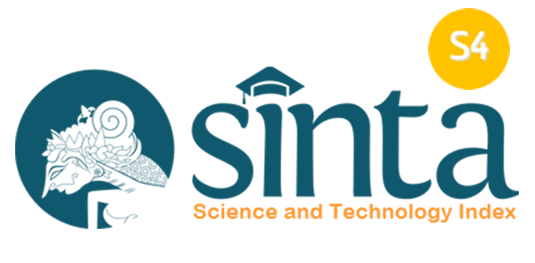DOES ISRAEL COMMIT GENOCIDE CRIMES AGAINST PALESTINE PERSPECTIVE OF FORMER CHIEF PROSECUTOR OF THE INTERNATIONAL CRIMINAL COURT
DOI:
https://doi.org/10.26740/paramasastra.v11n2.p169-187Keywords:
Contextual Meaning, Inferential Meaning, Linguistic, Pragmatic, Relevance TheoryAbstract
This research aims to elucidate the inferential meanings in the utterances of Luis Moreno Ocampo, an Argentine lawyer who served as the first Chief Prosecutor of the International Criminal Court (ICC) from 2003 to 2012, overseeing investigations into war crimes, genocide, and crimes against humanity; and the UpFront host during the interview. The implications of this study are to assist readers, particularly viewers and listeners of the UpFront program, in understanding the inferential meanings of the speakers, thereby enabling the broader community to fully comprehend the speakers' intentions and avoid misinterpretations of the discourse presented. The research method employed is qualitative research with a contextual meaning analysis (pragmatic) approach, following the relevance theory by Sperber and Wilson (2012a). The results of the research indicate that The 1st Speaker (and continuely written as SPK 1, refers to Up Front program hostaims to validate claims of Israeli involvement in war crimes and genocide during the UpFront program, by highlighting the pursuit of justice in the Israel-Palestine conflict. SPK 2 (the 2nd speaker, refers to Luis Moreno Ocampo) offers a broader perspective by acknowledging the responsibility shared between Hamas and Israel for the atrocities committed, rather than solely blaming one party. SPK 2 also intends to emphasize the challenges faced by international legal institutions such as the International Criminal Court in holding perpetrators accountable. Inferentially, SPK 2 seeks global cooperation to combat genocide and promote peace, particularly emphasizing the importance of collective action based on solidarity in addressing the ongoing humanitarian crisis.
References
Alashqar, M. M., Rahim, A. A., & Aziz, A. S. A. (2023). War Crimes In Gaza Strip From Year 2008 2021: Individual Criminal Responsibility Under The Legal Framework Of Rome Statute Of The International Criminal Court. Journal Of International Studies(Malaysia), 19(1). Https://Doi.Org/10.32890/Jis2023.19.1.3
Barchas-Lichtenstein, J., Voiklis, J., Glasser, D. B., & Fraser, J. (2021). Finding Relevance In The News: The Scale Of Self-Reference. Journal Of Pragmatics, 171. Https://Doi.Org/10.1016/J.Pragma.2020.10.001
Giles, H. (2016). Communication Accommodation Theory. In The International Encyclopedia Of Communication Theory And Philosophy. Https://Doi.Org/10.1002/9781118766804.Wbiect056
Goatly, A. (2022). Register And The Redemption Of Relevance Theory. Pragmatics. Quarterly Publication Of The International Pragmatics Association (Ipra). Https://Doi.Org/10.1075/Prag.4.2.05goa
Ifantidou, E. (2023). Newspaper Headlines, Relevance And Emotive Effects. Journal Of Pragmatics, 218. Https://Doi.Org/10.1016/J.Pragma.2023.09.013
Khalil, H. H., & Al-Zubaidi, N. A. G. (2022). Constructing Carcinogen Risk In Scientific Discourse Through Ideological Conflict: A Cognitive Pragmatic Analysis. Theory And Practice In Language Studies, 12(8). Https://Doi.Org/10.17507/Tpls.1208.04
Khalil, H. H., & Al-Zubaidi, N. A. G. (2023). The Construction Of Spatial Invasion Of Carcinogen Risk In Scientific Discourse: A Corpus-Based Study. Gema Online Journal Of Language Studies, 23(1). Https://Doi.Org/10.17576/Gema-2023-2301-11
Leotti, S. M., Sugrue, E. P., & Winges-Yanez, N. (2021). Unpacking The Worlds In Our Words: Critical Discourse Analysis And Social Work Inquiry. Qualitative Social Work. Https://Doi.Org/10.1177/1473325021990860
Matthes, J., Schmuck, D., & Von Sikorski, C. (2023). In The Eye Of The Beholder: A Case For The Visual Hostile Media Phenomenon. Communication Research, 50(7). Https://Doi.Org/10.1177/00936502211018596
Nicolle, S. (2022). Communicated And Non-Communicated Acts In Relevance Theory. Pragmatics. Quarterly Publication Of The International Pragmatics Association (Ipra). Https://Doi.Org/10.1075/Prag.10.2.04nic
Sperber, D., & Wilson, D. (2012a). Introduction: Pragmatics. In Meaning And Relevance. Https://Doi.Org/10.1017/Cbo9781139028370.002
Sperber, D., & Wilson, D. (2012b). Pragmatics, Modularity And Mindreading. In Meaning And Relevance. Https://Doi.Org/10.1017/Cbo9781139028370.016
Van Dijk, T. A. (2012). Knowledge, Discourse And Domination. In Pragmaticizing Understanding: Studies For Jef Verschueren. Https://Doi.Org/10.1075/Z.170.10dij
Wharton, T., Jagoe, C., & Wilson, D. (2022). Relevance Theory: New Horizons Foreword By Tim Wharton, Caroline Jagoe And Deirdre Wilson. In Journal Of Pragmatics (Vol. 194). Https://Doi.Org/10.1016/J.Pragma.2022.03.012
Wilson, D. (2003). Relevance And Lexical Pragmatics. Italian Journal Of Linguistics, 15(2).
Wilson, D., & Sperber, D. (1986). Pragmatics : An Overview. Clcs Occasional Paper, No 16.
Wilson, D., & Sperber, D. (1988). Representation And Relevance. Mental Representations: The Interface Between Language And Reality.
Wilson, D., & Sperber, D. (2002). Truthfulness And Relevance. Mind, 111(443). Https://Doi.Org/10.1093/Mind/111.443.583
Downloads
Published
How to Cite
Issue
Section
 Abstract views: 544
,
Abstract views: 544
, PDF Downloads: 356
PDF Downloads: 356












